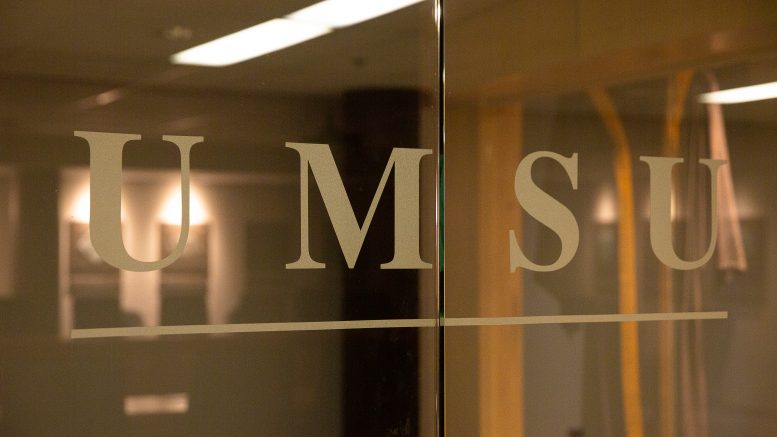A motion to adopt the Canadian Arab Lawyers’ Association’s (CALA) definition of anti-Palestinian racism was brought forward during the most recent UMSU board meeting on March 14. The motion was referred to the governance committee to be voted on at a later date.
The motion was brought forward by Roleen Alarab, a Palestinian student at the U of M who provides external communications for Students for Justice in Palestine. The motion proposes that the definition be included in section seven of UMSU’s position statement book.
The CALA definition states that “anti-Palestinian racism is a form of anti-Arab racism that silences, excludes, erases, stereotypes, defames or dehumanizes Palestinians.”
Alarab said the motion “seeks justice and recognition” for Palestinian and Muslim students at the university.
“This motion aims to shed light on the systemic challenges we face to pave the way for a more inclusive and understanding campus environment,” she said.
She said the motion highlights “the collective struggle of Palestinian Muslim students on campus.”
The CALA definition lists denial of the Nakba — an Arabic term which means “catastrophe” and refers to the 1948 forced displacement of 700,000 Palestinians amid the creation of the state of Israel — defending violence against Palestinians, denial of Palestinians’ connection and rights to “historic Palestine,” excluding Palestinian perspectives and claiming that Palestinians and their supporters are “inherently antisemitic” or sympathetic to terrorism as examples of anti-Palestinian racism.
Alarab said that UMSU’s potential recognition of the CALA definition would be a “profound affirmation” of Palestinians students’ experiences and would demonstrate the university’s commitment to opposing “all forms of racism.”
“This is about more than just a policy or definition, it’s about sending a message that the university is a place where every student’s identity and history are acknowledged and respected,” she said.
Alarab said approval of the CALA definition would demonstrate recognition of the “unique challenges and forms of discrimination” that Palestinians face. She said she hoped it would help people see their struggles “not as abstract issues, but as lived realities that impact our daily life and academic experiences.”
Alarab said an “inclusive campus environment” to her means “an academic and social setting that actively works against the marginalization and exclusion of Palestinian voices.”
“It’s about knowing that the university is a place where identity is not just tolerated, but respected and embraced,” said Alarab.
She said the CALA definition provides a “formal framework” of language and “institutional backing” for Palestinian students to advocate for their rights and seek support. She said adopting it would open up opportunities for dialogue and education between students.
“For me, this is an opportunity to share my perspective, educate peers about the Palestinian narrative, and dismantle stereotypes and misconceptions,” she said.



